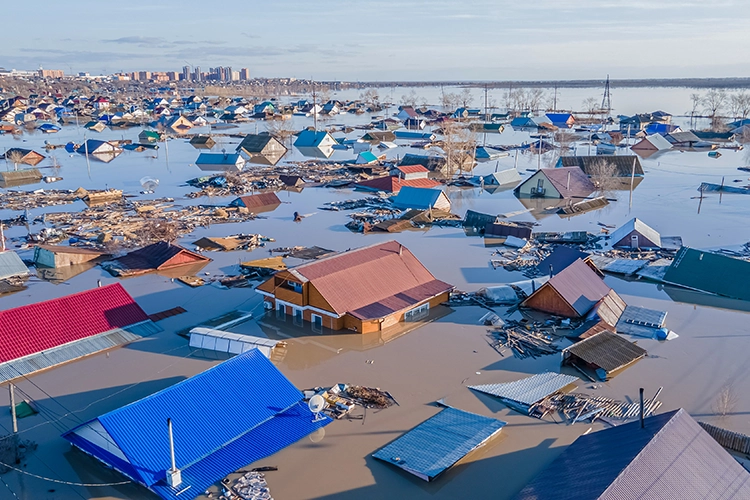
From carbon caps to universal green dividends, Patrick Brown lays out a vision for a Global Climate Club – and why the world can no longer afford to wait for the USA to catch up


Donald Trump’s introduction of aggressive tariff policies makes one thing abundantly clear: the USA is no longer a reliable partner in global climate cooperation. These tariffs will shatter fragile clean energy supply chains, hike the cost of renewables and embolden fossil fuel industries worldwide. As the USA weaponises trade barriers to prop up fossil fuels and sabotage clean energy markets, the rest of the world faces a stark choice: continue chasing the illusion of transatlantic partnership, or forge a new path based on climate solidarity, economic justice and shared survival.
We urgently need a Global Climate Club that brings together countries serious about climate action. Members would commit to a binding cap on fossil fuel extraction and imports, ensuring they remain within the shrinking global carbon budget. Rights to extract or import fossil fuels would be distributed equally per capita – a radical break from the status quo, where rich countries hoard and burn the lion’s share.
High-emitting nations would need to purchase extra allowances from low-emitting countries, creating a direct transfer of unconditional, nondebt-creating climate finance to those countries – mostly in the Global South.
A carbon charge would be applied at the point of extraction or import. The rate of charge would be based on a climate-justice index that accounts for gross national product and climate vulnerability: richer countries would pay more while poorer, climate-vulnerable nations would pay less.
Enjoying this article? Check out our related reads:
Every dollar raised would flow into a common fund – a democratically owned and operated mechanism to supercharge the green transition. Within the club, countries would benefit from fairer trade terms, stable energy markets and access to green investments via a ‘climate commons fund’. Fossil fuel imports from outside the club would face steep tariffs – at least double the highest internal charge. This system would penalise climate freeloaders and incentivise countries to join. Countries exporting to or importing from outside the club could face sanctions, or such trade could be banned altogether under a binding legal framework.
The USA is unlikely to join. Other affluent nations with low export dependence (such as Canada or Australia) may also hesitate. However, fossil-fuel-producing countries that are heavily reliant on exports – particularly those vulnerable to climate impacts (such as Algeria, Nigeria or Brazil) – would be hit hard by export tariffs without access to the fund’s benefits.
The main challenge lies in assembling a critical mass of ‘first movers’ – a group that includes enough fossil fuel producers to ensure energy security within the club. This arrangement should be a win–win: producers gain a guaranteed market and share in the fund’s investments. But these countries need confidence that they won’t be going it alone.
An early iteration of the club could include the EU, most African and South American nations, East Asia (including China) and the South Pacific. Together, these regions represent a crucial blend of economic power, fossil fuel resources and climate vulnerability.
Admittedly, the logistics are complex. A non-fungible licensing system would be required to track national allowances, possibly through blockchain. A rebate mechanism would need to be created for intra-club exports, which wouldn’t count towards national allowances. Embedded carbon, at least for the most carbon-intensive industries, would need tracking. The EU’s Carbon Border Adjustment Mechanism is a crude, protectionist version – the Climate Club would be a fairer successor.
A robust ethical framework would also be required to guide the fund’s investments. Inflation would likely spike in the short term due to the carbon charge, but universal dividends would cushion this blow. And in the long run, mass investment in renewables would cut fossil dependency and shield club economies from price shocks.
Some nations aren’t waiting. Malawi has launched a task force to explore its own ‘cap and share’ system, the framework that underpins the Climate Club. In January, Palau became the first country to sign the Cap and Share pledge. Several fossil-fuel-producing nations have backed the Fossil Fuel Non-Proliferation Treaty. Initiatives such as the Beyond Oil and Gas Alliance may provide a structural blueprint. Regional blocs such as the EU, the African Union, Mercosur, ASEAN and AOSIS have all shown they’re ready to act.
Trump’s America is building trade walls and doubling down on fossil fuels. The rest of us must build bridges – to a green economy, a fairer international system and a liveable future. The Global Climate Club isn’t a utopian fantasy. It’s a practical response to a collapsing world order. It accepts the brutal truth: without deep, structural change to the global economy, the Paris Agreement will fail – and millions, if not billions, will suffer.
- Dr Patrick Brown is Campaigns and Operations Director at Equal Right. He is a former Member of the Legislative Assembly in Northern Ireland, with ten years of experience as an elected representative in local and national government. He has a background in international development and a PhD in politics from Queen’s University, with his new thesis looking at the role of cash transfers in post-conflict peacebuilding. He has extensive experience in grassroots organising, environmental advocacy and political campaigning, including as the founder of a political travel company and as the Campaigns and Development Officer for the Alliance Party of Northern Ireland. He is currently based in Downpatrick, Northern Ireland.




